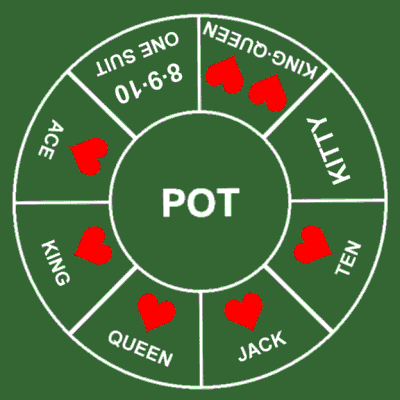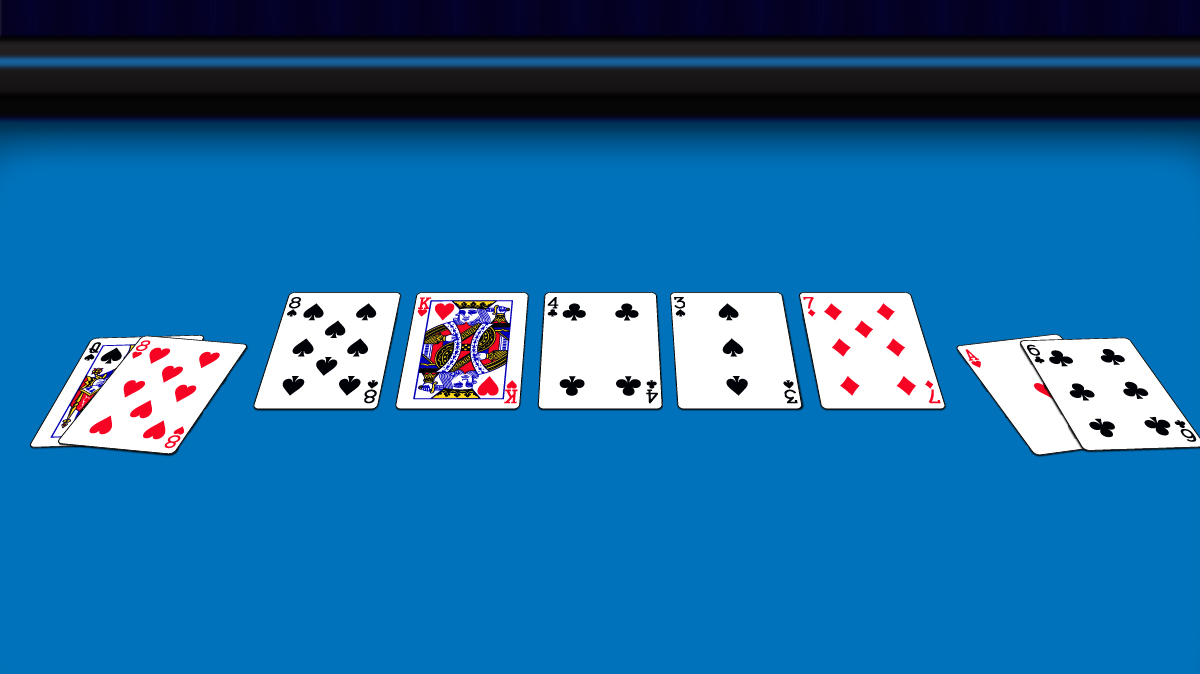Poker Rules All In Showdown
The two players to the left of the dealer must post these compulsory “blinds” – so called because they are placed before anyone even sees their cards. The player on the dealer’s immediate left posts the “small blind” and the player one further seat round the table posts the “big blind”, which is usually twice the size of the small.
Active players expose all of their cards. The best hand, in reverse order wins. RULES FOR 7-CARD STUD HIGH POKER, 7-CARD STUD HI/LOW SPLIT (8 QUALIRIER) POKER, RAZZ (7-CARD STUD LOW) POKER Contents: Initial Three Cards Third-Sixth Street Action Seventh Street Action Showdown Rules INITIAL THREE CARDS I. In the poker rules page dedicated to the game, you find the perfect beginner's guide to moving your first steps in the world of Omaha. When a hand reaches the showdown, the player with the.
In the illustration, the dealer is in seat five with the button in front of him. The two seats to his left are “in the blinds”.
After every hand is complete, the dealer button moves clockwise one position around the table, which means that players take turns to be the dealer, the small blind and the big blind.
After the blinds have been posted, all players are dealt two cards face down. These are known as “hole” cards, and can only be seen and used by one player. By the end of the hand, five more “community” cards may have been dealt, face up in the middle of the table, which are available for all players to use.
The first three of the community cards are exposed together (known as the “flop”), then a fourth card (known as the “turn”) is dealt individually, and then a fifth (known as the “river”) is exposed. A betting round separates each deal.
The aim of poker is to make the best five-card hand out of the seven available – two in an individual’s hand and the five community cards.
The Four Betting Rounds
If a hand of poker is played all the way to its conclusion, there will be four betting rounds – or four periods during which players can commit their chips to the pot. A player can also “fold” their cards and leave the action at any time (see below).
A betting round must be concluded satisfactorily before the remaining players see more cards and another betting round begins.
Pre-Flop – The First Round of Betting
The first betting round takes place before the first three community cards (the “flop”) are dealt. This action is described as “pre-flop” and at this stage players are wagering based solely on the strength of their two concealed “hole” cards.
The player sitting to the left of the big blind acts first – a position known as “under the gun”. Players then act in turn, moving clockwise around the table.
You have the following options when it is your turn to act:
- Fold: This means that you no longer want to play the hand, and are throwing your cards away. You no longer have any claim to the money in the pot, even if you paid one of the blinds.
- Call: This means that you want to play the hand by matching the size of the current bet. Pre-flop, this will be at least the size of the big blind, and may be greater if any other player has raised.
- Raise: This means that you want to raise the size of the current bet. If nobody before you has made a raise, you can make a raise yourself.
- If you are sitting in the big blind and no else has raised before you, you have the option to check. This means that you do not wish to commit any more chips to the pot. You can only check pre-flop if you are in the big blind and no one else raised.
The showdown occurs after the last card has been delivered and the final round of betting has taken place. It is the point at which the hand ends and the winner of the pot is determined. As soon as the last player has completed their last action during the final round of betting, showdown begins. At this point, the players who still hold live hands show them down. This means that they lay them face up on the table so that everyone at the table can see them and the dealer can read them. It is the dealer’s responsibility to read all of the hands and award the pot to the winning player or players.
Poker Rules All In Showdown Game
 Most casinos have house rules governing the correct manner in which hands are to be shown at showdown. If a player fails to show down a hand correctly, it is at a minimum considered to be rude, and in some cases, it can even cost them the pot. For example, most house rules state that a hand must have all cards laid face up, with the backs touching the table, in order to play. This is to ensure that all players can see the entire hand, and to prevent players from illegally adding or removing cards from their hands during play. If a player fails to expose his hand as required at showdown, his hand may not be read by the dealer, and he can potentially lose the pot.
Most casinos have house rules governing the correct manner in which hands are to be shown at showdown. If a player fails to show down a hand correctly, it is at a minimum considered to be rude, and in some cases, it can even cost them the pot. For example, most house rules state that a hand must have all cards laid face up, with the backs touching the table, in order to play. This is to ensure that all players can see the entire hand, and to prevent players from illegally adding or removing cards from their hands during play. If a player fails to expose his hand as required at showdown, his hand may not be read by the dealer, and he can potentially lose the pot.Casinos have good reason to have strict rules governing procedure at showdown. Historically, some players have cheated by exchanging the cards in their hand with cards they have concealed in their clothes or underneath the table. For this reason, many clubs are very strict about the requirement that all cards must stay above the level of the table and be in plain view at all times. If a card goes off the table at any point during the hand, including during showdown, it can be declared dead, and this can cause a player’s entire hand to be ruled dead. If players get too excited when they are turning their hands over, they can accidentally drop one of their cards on the floor. Even if the card bounced off the table top on to the floor, it is considered a card down. This can cause a winning hand to be declared dead, although depending upon the house rules, the floor man may have some flexibility to preserve the winning hand in the case of player or dealer error.
Clubs may also have differing rules on the order of exposure at showdown. It is customary for the action to generally proceed in a clockwise order. It is also customary that when a bettor is called, the bettor must show down their hand first, and the caller, if they can beat the bettor’s hand, has the privilege of turning over their hand second. This is usually how it goes, the final aggressor on the river will turn his hand over first, and the remaining players will respond in a clockwise order. Sometimes, if there is no action on the final betting round, a dispute can arise over who should turn their hand over first, the last aggressor, or the player who is in the first position clockwise from the button.
The reason that disputes sometimes arise in this situation is that house rules frequently differ on this, although it is a technicality for which there is a correct answer. Although it will not have any impact on who will win the pot, and it ultimately makes no difference who shows down first, house rules will specify who is to show down first in the event that there is no action on the final round of betting. Sometimes they will specify that the last aggressor (the last player to bet or raise) is required to show down first, regardless of which betting round that action took place on. Other casinos’ house rules will specify that in the event that there is no action on the final betting round, showdown will proceed clockwise from the dealer button. Since the order of showdown has no real impact on the outcome of the hand, these disputes are relatively rare. If you are playing online, the order of showdown is clockwise, and it is done automatically, so disputes of this nature are impossible.
 Usage: Made It To Showdown, Lost At Showdown, Showed Down A Flush
Usage: Made It To Showdown, Lost At Showdown, Showed Down A FlushPrevious Poker Term: Short Stack
